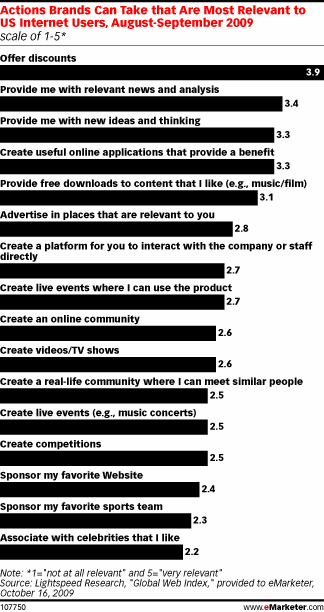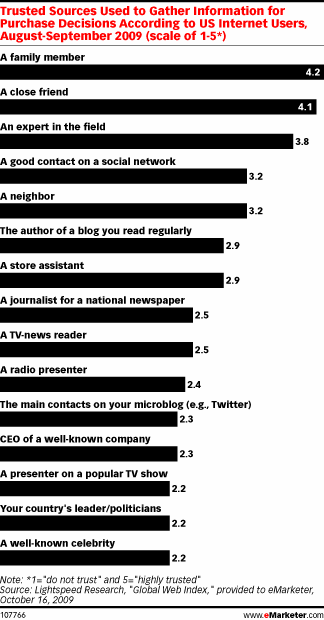
But don’t get too friendly! src: www.eMarketer.comThe top characteristic US consumers want from brands they like is to improve their knowledge—and the least desirable one is for a brand to “only be visible in store”—according to the “Global Web Index” from Lightspeed Research.Helping consumers keep up to date on topics that were important to them was also key, followed by being entertaining, becoming part of a daily routine, and informing consumers about the product and the company. Consumers were relatively uninterested in brands that tried to act like their friends.

Unsurprisingly in a difficult economy, consumers said the most relevant thing a brand could do for them was offer discounts. That topped various social and creative efforts such as online communities and brand-created video or TV programs.Word-of-mouth was the No. 1 purchase driver according to the surveyed consumers. Face-to-face recommendations had significantly more weight with respondents than TV ads, advice from online friends, e-mails or Websites.

And the most trusted source of brand information was family members, followed by friends and experts.Interestingly, US consumers found social network contacts and bloggers that they read regularly more trustworthy than major journalists, television news readers and radio presenters. Celebrities and TV show presenters were tied with politicians for the dishonor of being considered least trustworthy.Compared with Americans, consumers surveyed in the UK were more likely to value brands that helped them connect with people, and were more responsive to competitions and TV advertising.Keep up on the latest digital trends. Learn more about an eMarketer Total Access subscription, today.






